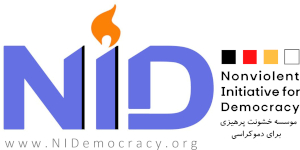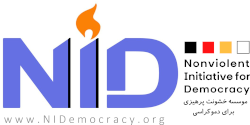The Coordination Council of Teachers’ Trade Unions in Iran has expressed its reaction to the judicial verdicts issued against the teacher activists in Fars and Khuzestan provinces through a statement.
The statement by the Coordination Council of Teachers’ Trade Unions in Iran regarding the trials of their colleagues in Fars and Khuzestan is as follows: “This week, judicial verdicts have been issued against teacher activists in Fars and Khuzestan, continuing the line of suppression. Eight activists from Fars have been sentenced to 34 years in prison, and a six-month disciplinary imprisonment for ‘Pirooz Nami’ from Khuzestan.” The statement further mentions the names of the teachers who received these sentences.
These verdicts come at a time when other teachers are still facing legal persecution, and their sentences have not been issued yet. The Coordination Council of Teachers’ Trade Unions in Iran describes this action by the judiciary as a “story of continuing repression” and highlights the difference between modern and old laws regarding punishment: “One of the fundamental differences between modern law and the old legal perspective, rooted in the Middle Ages, is the approach to punishment. In modern law, punishment has a rehabilitative and educational aspect, while in old law, punishment is perceived as a means of warning and intensifying actions for the caution of others. Unfortunately, this outdated perspective has dominated the country’s judicial system and is used to control society.”
The council considers this long-standing and failed method of punishment employed by the Islamic Republic as ineffective in all areas: “This medieval approach has continued in recent years in response to trade and political protests, and all evidence clearly shows its failure. Since the early 1980s, when civil and trade organizations gained more prominence and teachers, within their professional organizations, raised their legitimate and fundamental demands, confrontations began, including judicial action against well-known figures. In the past two years, the harshest measures against civil and trade activists have been carried out through security institutions, the Ministry of Education, and the judiciary, with baseless accusations of propaganda against the regime, actions against national security, etc., leading to the deprivation of hundreds of teachers from receiving promotions based on their legitimate demands, and the issuing of dismissal orders for some teachers who had the least dissent regarding trade demands.”
The council raises the most important question to the continuation of this failed and defeated method, asking, “Why don’t they see the realities? By continuing this approach, they not only fail to address the current social problems, but also consciously or unconsciously take steps in reverse.”
The Coordination Council of Teachers’ Trade Unions in Iran strongly condemns the baseless accusations against teachers and trade activists and the issuance of such verdicts, referring to them as “evidence of the historical and cultural stagnation of closed minds and incompetence” that have lost the ability to correctly understand societal issues: “They do not see the damages and deep rifts created in society, and they have only chosen repression and intimidation as a means to sustain their governance.”
In conclusion, the council emphasizes the legality of the teachers’ demands and protests and urges for the continuation of teachers’ protests until their demands are met. They address the authorities, stating: “Over the past two decades, as judicial verdicts increased regarding teachers’ legitimate protests against the deplorable conditions of education and work, the opposite results have been achieved.



